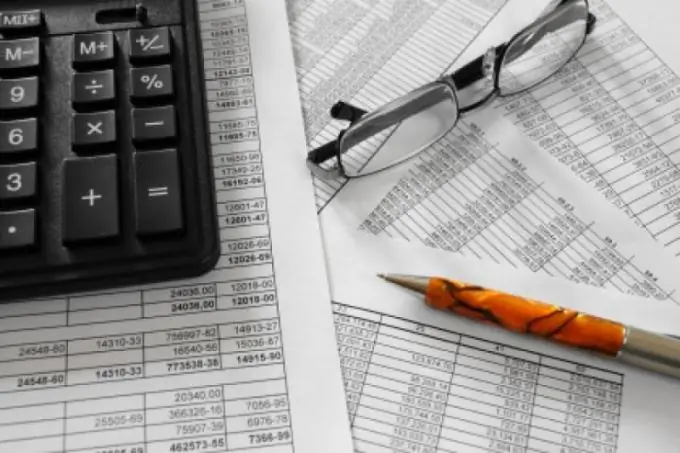- Author Isaiah Gimson gimson@periodicalfinance.com.
- Public 2023-12-17 02:53.
- Last modified 2025-01-24 12:06.
Opening a store, in addition to purchasing goods and attracting customers, brings a lot of hassle with keeping records. The tedious work of studying documents, checking out, filing and processing often seems empty and stupid. But this is not entirely true. Subsequently, with a careless attitude, it will be necessary to restore the accounting.

Instructions
Step 1
With careful bookkeeping, accounting data will come in handy in any situation. Therefore, lead it, even if the legislation allows you not to do it. In any case, you will fill in the necessary tax documents (for the fiscal authorities), and management accounting based on accounting will be needed to analyze many aspects, account for goods and determine the efficiency of the store.
Step 2
Hire a professional accountant so as not to worry about high-quality and timely accounting, delving into all the nuances. Thus, you will always have at hand any necessary information, the relevance and accuracy of which you are guaranteed. At the same time, troubles with incoming and outgoing documents, their synthesis and analysis, will bypass you. This method is the most expensive, but also the most reliable. You will find a good assistant in the person of an accountant.
Step 3
Contact an accounting firm. There are a lot of them, and the cost of the assistance provided in keeping records is different. It depends on the image of the company, convenient interconnection, the presence (or absence) of insurance, the amount of work. You will pay less than hiring a personal accountant. But there is a high probability that your business will be handled by different people who are not interested in the specifics of your store.
Step 4
Specify in the contract full support from the introduction of primary documentation to the submission of tax returns. Or engage in the input and synthesis of the primary data yourself, and entrust the accounting firm only with the functions of processing the information you have collected. Make it a condition to advise you for a fee on certain issues. A big disadvantage in this situation will be the need to constantly carry or send documents to the company, having previously collected them and distributed them by type.
Step 5
Maintain store records yourself. This requires only the desire to understand everything and time. Buy a specialized program (the most common of them is 1C: Accounting) with adaptation to trading, which largely automates the process. With it, you will only be required to enter the receipt documents in the most complete and timely manner. She will do the rest for you.
Step 6
Design your own accounting registers that are most convenient for you. They should reflect information about the receipt and consumption of goods (to track balances), accumulate the amount of costs (for analyzing costs), track the daily amounts of cash receipts and delivering it to the bank (to calculate revenue and cash balance), pay wages along with its payment (to exclude debt), show the amount of deliveries and their repayment on time (to exclude overpayment or penalties for late repayment of debt) - and much more that is needed daily when conducting trading activities.






